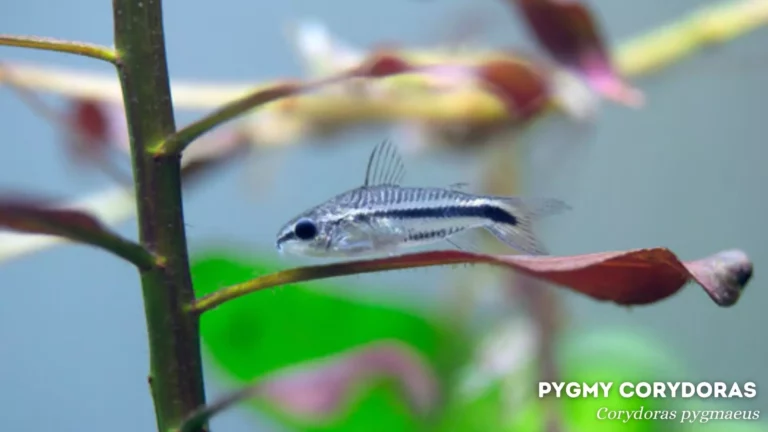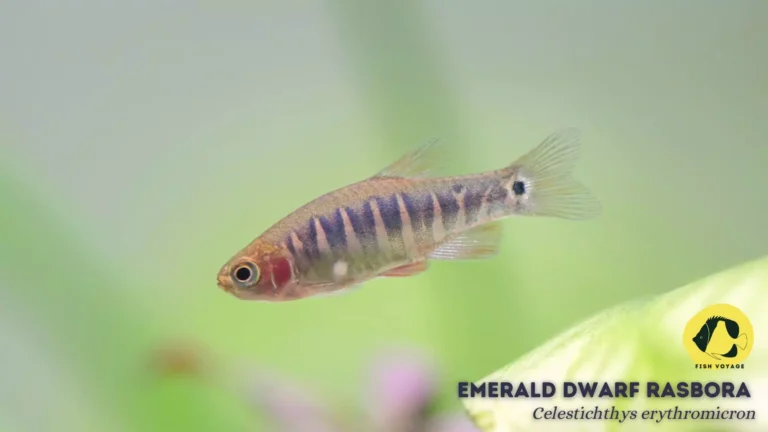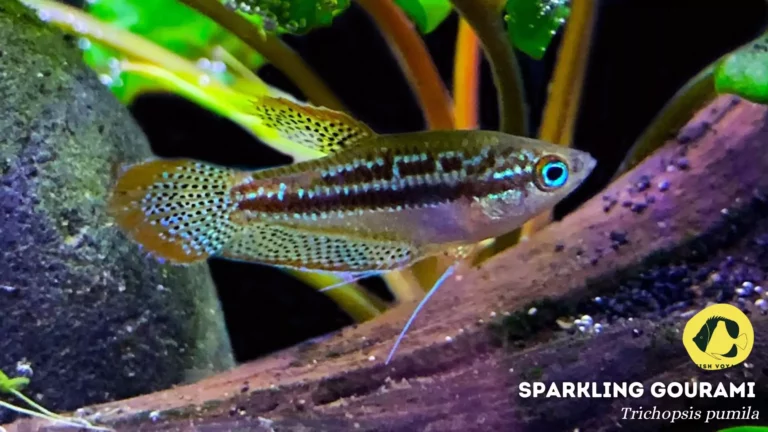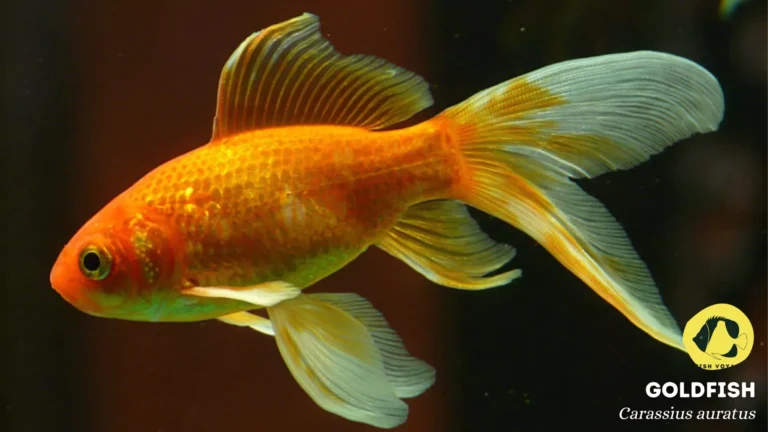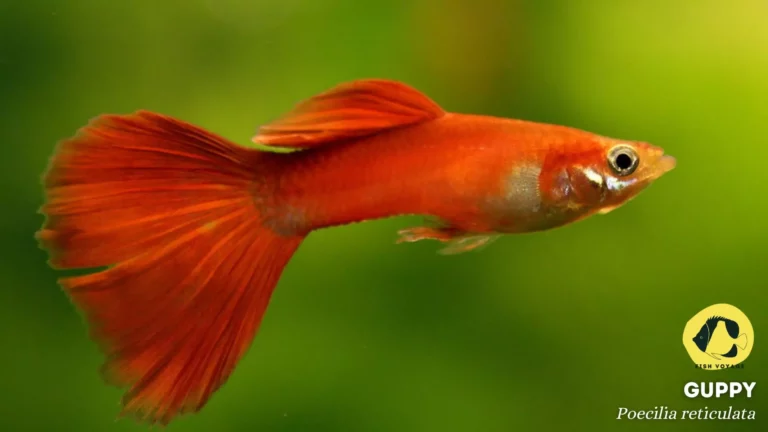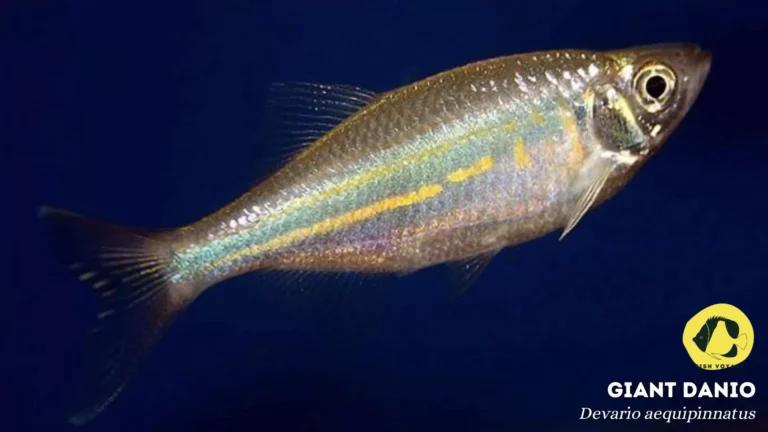What Are Good Cold Water Fish?
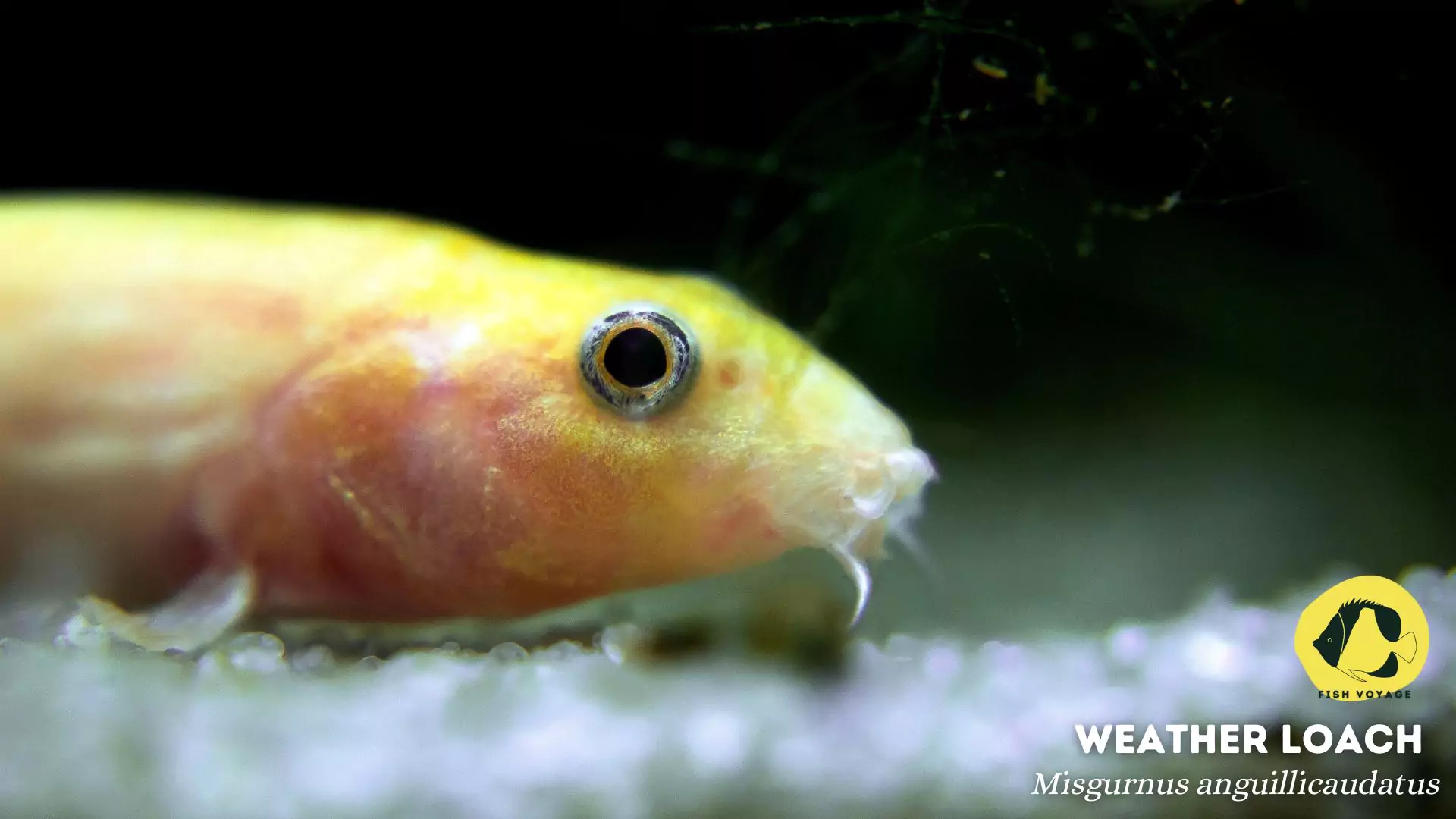
Cold water fish, a diverse category encompassing species such as goldfish, white cloud mountain minnows, and weather loaches, are gaining popularity among aquarium enthusiasts for their unique characteristics and adaptability. These aquatic companions thrive in cooler temperatures, offering aquarists a captivating alternative to tropical setups. Choosing suitable cold water fish is paramount for a successful aquarium experience, as it ensures not only the well-being of the fish but also contributes to the overall harmony of the aquatic environment. In this blog post, we delve into the qualities of good cold water fish and provide insights into their proper care, enabling enthusiasts to make informed decisions when selecting the perfect aquatic companions for their tanks. Discover the world of cold water fish and embark on a rewarding journey of aquarium keeping.
Characteristics of Good Cold Water Fish
Hardy Species
Explanation of Hardiness
Cold water fish are renowned for their hardiness, demonstrating resilience in various environmental conditions. Hardiness refers to the ability of these species to withstand fluctuations in water parameters, making them an excellent choice for both novice and experienced aquarium enthusiasts. This adaptability ensures a more forgiving environment for fishkeepers, contributing to the overall success of the aquarium.
Examples of Hardy Cold Water Fish
- Goldfish: With their robust nature, goldfish are emblematic of hardy cold water species. They can endure varying water conditions and are known for their longevity.
- White Cloud Mountain Minnow: This small yet resilient species is well-suited for cold water setups, showcasing durability and vibrant colors.
- Weather Loach: Renowned for their hardiness, weather loaches thrive in diverse conditions, making them an ideal choice for cold water aquariums.
Compatibility with Other Fish
Considerations for Peaceful Cohabitation
When selecting cold water fish, it’s crucial to consider their compatibility with other tank inhabitants. Understanding the social dynamics and temperament of each species is essential to prevent conflicts and create a harmonious aquarium community.
Tips for Creating a Harmonious Aquarium Community
- Research Fish Temperaments: Prioritize species known for their peaceful nature to avoid aggression within the tank.
- Provide Adequate Space: Ensure that the aquarium size accommodates the number and size of fish, preventing overcrowding and territorial disputes.
- Introduce Fish Gradually: Gradual introductions help reduce stress and allow fish to acclimate to their new environment, fostering a more cohesive community.
By prioritizing hardiness and compatibility, aquarists can establish a resilient and harmonious cold water aquarium, promoting the well-being of their aquatic companions.
Popular Cold Water Fish Species
Goldfish
Different Varieties and Their Characteristics
- Common Goldfish: Known for their classic appearance, these fish have single tails and come in various colors.
- Fantail Goldfish: Recognizable by their split tails and rounded bodies, fantail goldfish add elegance to aquariums.
- Oranda Goldfish: Distinctive for their prominent head growth, oranda goldfish are prized for their unique appearance.
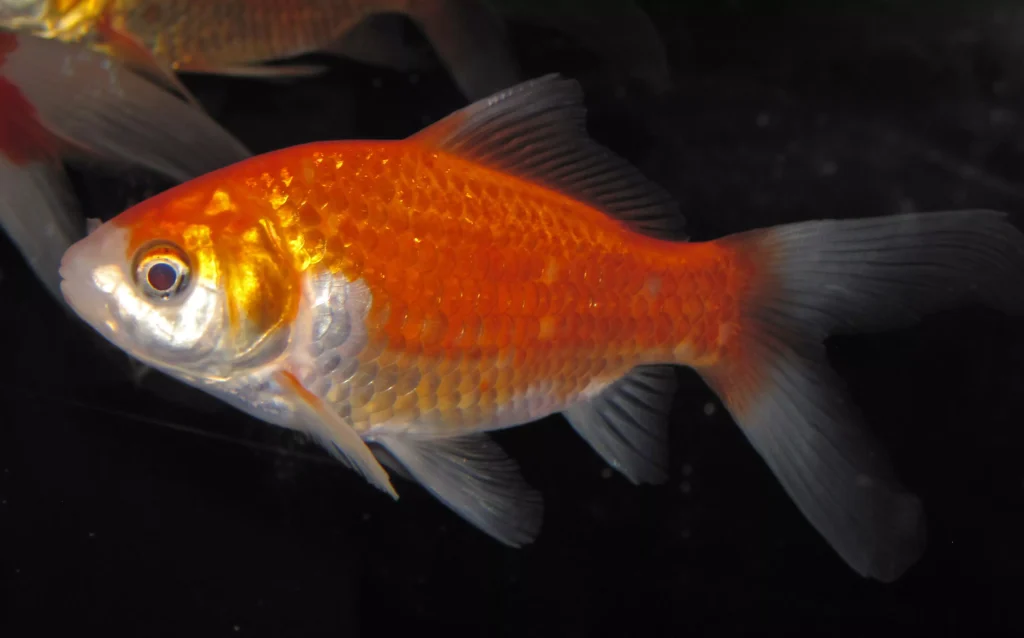
Proper Care and Maintenance
- Tank Size: Goldfish thrive in spacious environments, and a larger tank is essential for their well-being.
- Water Quality: Regular water changes and proper filtration are crucial to maintain optimal water conditions.
- Diet: A balanced diet, including high-quality pellets and occasional treats, supports their health.
White Cloud Mountain Minnow
Overview
- A small, peaceful species with vibrant colors, white cloud mountain minnows are well-suited for community aquariums.
- Their shoaling behavior and active swimming make them a delightful addition to cold water setups.
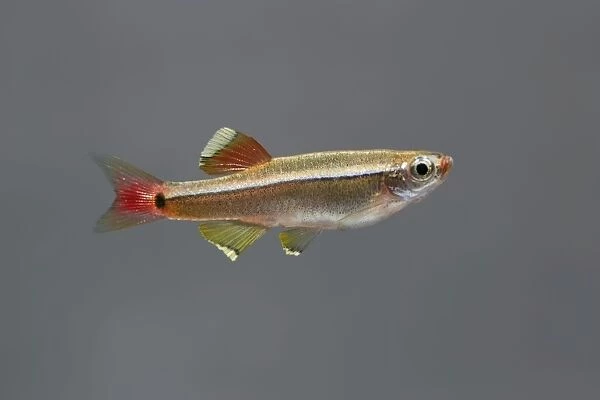
Ideal Tank Conditions
- Temperature: Keep the water temperature between 64-72°F (18-22°C).
- Tank Setup: Provide ample hiding places and plants for these active swimmers.
- Compatibility: They coexist well with other peaceful species.
Weather Loach
Unique Characteristics and Behavior
- Weather loaches exhibit a playful and inquisitive nature, often burrowing in the substrate.
- Their sensitivity to atmospheric pressure changes makes them intriguing to observe.
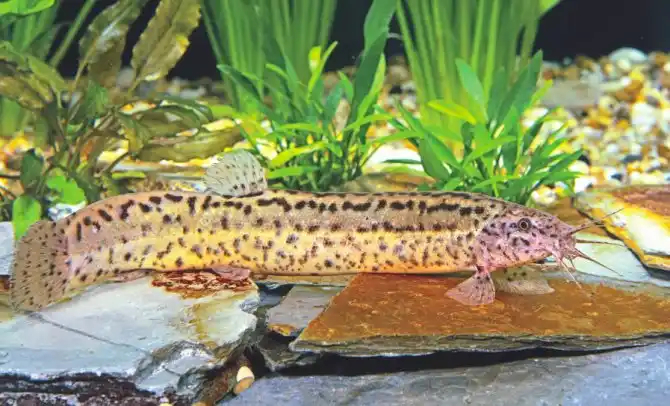
Tips for Keeping a Happy Weather Loach
- Substrate: Use fine gravel or sand to accommodate their burrowing behavior.
- Tank Mates: Choose tank mates that share a peaceful temperament to prevent stress.
- Water Conditions: Maintain stable water parameters, and avoid sudden changes.
Rosy Barb
Overview
- Recognized for their vibrant coloration and distinctive barbels, rosy barbs add energy to aquariums.
- They are known for their schooling behavior, and a group of them creates a lively display.
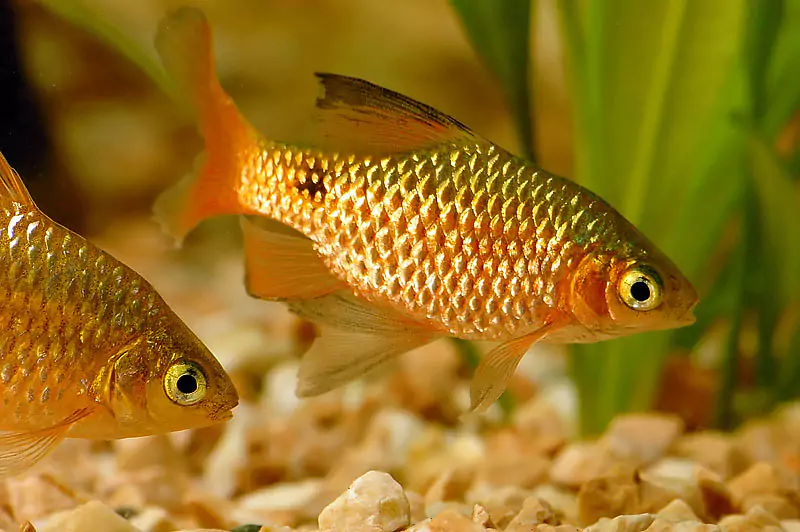
Ideal Tank Conditions
- Temperature: Keep the water temperature between 64-74°F (18-23°C).
- Tank Decor: Include plants and hiding spots to cater to their need for exploration.
- Diet: Offer a varied diet, including flakes and small pellets.
Hillstream Loach
Overview
- Hillstream loaches have a flattened body, resembling a leaf, and are adapted to fast-flowing streams.
- Their unique appearance and algae-eating habits make them valuable additions to cold water setups.
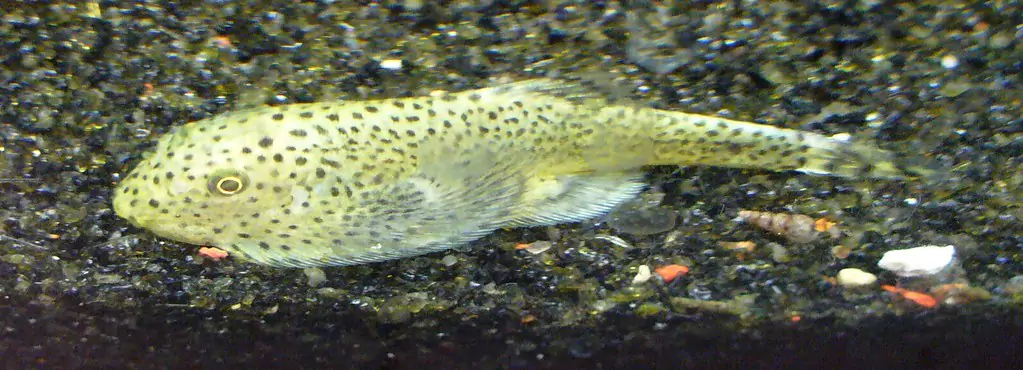
Ideal Tank Conditions
- Water Flow: Mimic river-like conditions with a gentle water flow.
- Temperature: Maintain temperatures between 64-72°F (18-22°C).
- Diet: Provide a mix of algae-based and sinking pellets to support their nutritional needs.
By incorporating these diverse cold water fish species into your aquarium, you can create a captivating and thriving aquatic community.
Aquarium Setup and Maintenance
Ideal Tank Size and Conditions for Cold Water Fish
Consider Tank Size Carefully
Choose a tank size based on the specific requirements of the cold water fish species you intend to keep. Adequate space is crucial for their well-being.
Create a Suitable Environment
Incorporate decorations, hiding spots, and plants to mimic a natural habitat, providing a comfortable and enriching environment for your fish.
Water Temperature and Filtration Requirements
Maintain Optimal Water Temperature
Cold water fish thrive in a temperature range typically between 50-75°F (10-24°C). Ensure consistency in temperature to prevent stress.
Invest in Effective Filtration
Use a reliable aquarium filter to maintain water quality. Cold water species are less tolerant of poor water conditions, making filtration crucial for their health.
Proper Feeding Practices
Choose Appropriate Fish Food
Select high-quality cold water fish pellets or flakes suitable for the dietary needs of your specific species. Consider supplementing their diet with occasional treats.
Monitor Feeding Frequency
Avoid overfeeding, as it can lead to water quality issues. Feed your fish in small, measured portions to prevent waste accumulation.
Routine Maintenance Tips for a Healthy Aquarium
Regular Water Changes
Perform routine water changes to remove accumulated waste and maintain optimal water parameters. The frequency may vary based on your tank size and fish population.
Monitor Water Parameters
Regularly test water parameters such as pH, ammonia, nitrite, and nitrate levels. Keep parameters within the recommended ranges for cold water fish.
Clean Substrate and Decor
Gently clean the substrate and decorations during water changes to prevent the buildup of uneaten food and waste. This promotes a clean and aesthetically pleasing aquarium.
Check Equipment Functionality
Regularly inspect and maintain aquarium equipment, including filters, heaters, and lights. Ensure they are functioning properly to provide a stable and comfortable environment.
Maintaining a well-balanced and carefully managed aquarium is essential for the health and happiness of cold water fish. By adhering to these points, aquarists can create a thriving aquatic ecosystem that enhances the overall well-being of their finned companions.
Tips for Choosing Cold Water Fish for Beginners
Consideration of Skill Level and Experience
Assess Your Skill Level
Before selecting cold water fish, honestly evaluate your experience level in aquarium keeping. Beginners may benefit from starting with hardy and forgiving species.
Research Fishkeeping Basics
Familiarize yourself with fundamental fishkeeping principles, including water parameters, feeding requirements, and basic equipment. A solid understanding will contribute to your success.
Recommendations for Easy-to-Care-For Species
Start with Hardy Species
Opt for cold water fish known for their hardiness, such as goldfish, white cloud mountain minnows, or weather loaches. These species are more forgiving of beginner mistakes.
Choose Peaceful Community Fish
Select species that exhibit peaceful behavior and are compatible with each other. This helps create a harmonious aquarium environment, reducing the likelihood of conflicts.
Explore Beginner-Friendly Varieties
Within popular species like goldfish, consider beginner-friendly varieties such as common goldfish or fantails. These varieties often have straightforward care requirements.
Avoiding Common Mistakes in Cold Water Fishkeeping
Avoid Overcrowding
Resist the temptation to overcrowd your aquarium. Maintain a reasonable number of fish based on the tank size to prevent stress and maintain water quality.
Monitor Water Parameters
Regularly test and monitor water parameters to ensure they remain within the recommended ranges. Inconsistent water conditions can lead to health issues in cold water fish.
Educate Yourself on Each Species
Take the time to research the specific needs and behaviors of the cold water fish you plan to keep. This knowledge will guide you in providing appropriate care and addressing potential challenges.
Gradual Introductions
When introducing new fish to your aquarium, do so gradually to minimize stress. Quarantine new additions before introducing them to the main tank to prevent the spread of diseases.
Seek Guidance from Experienced Aquarists
Don’t hesitate to seek advice from experienced fishkeepers or consult reputable resources. Learning from others’ experiences can help you navigate common pitfalls and ensure a successful start.
By following these tips, beginners can embark on their cold water fishkeeping journey with confidence, setting the foundation for a rewarding and enjoyable aquarium experience.
Conclusion
In conclusion, this guide has highlighted key considerations for selecting and caring for cold water fish, emphasizing the importance of hardiness, compatibility, and proper maintenance. As you embark on your fishkeeping journey, we encourage you to explore the diverse world of cold water species, fostering a rewarding and enduring connection with these fascinating aquatic companions. Dive into the wonder of cold water fishkeeping, and create an environment where your finned friends can thrive for years to come.
Additional Resources
Reputable Forums
- AquariumAdvice: Explore a diverse community of experienced aquarists on Aquarium Advice. Engage in discussions, seek advice, and share your experiences with fellow fishkeepers.
- Fishlore: Join the Fishlore community to access a wealth of information on cold water fish, aquarium setups, and troubleshooting. Connect with enthusiasts at various skill levels for valuable insights.
- r/Aquariums: Participate in the active and supportive community on Reddit’s r/Aquariums. Pose questions, share photos of your setup, and benefit from the collective knowledge of aquarium enthusiasts.
Recommended Products
- Hikari Goldfish Pellets: Elevate your goldfish’s diet with Hikari Goldfish Pellets, a high-quality and nutritionally balanced food designed to support their health and vitality.
- Fluval Aquarium Filters: Invest in reliable filtration with Fluval aquarium filters. Known for their efficiency, these filters help maintain optimal water quality for the well-being of your cold water fish.
- API Freshwater Master Test Kit: Monitor and maintain water parameters with the API Freshwater Master Test Kit. This comprehensive kit allows you to test essential parameters to ensure a stable and healthy aquatic environment.
- Seachem Prime Water Conditioner: Safeguard your fish against harmful substances with Seachem Prime Water Conditioner. This product effectively removes chlorine and detoxifies ammonia, promoting a safe aquatic habitat.
- Aqueon Aquarium Heaters: Achieve precise temperature control with Aqueon Aquarium Heaters. Designed for reliability, these heaters help maintain consistent water temperatures for your cold water fish.
These additional resources and product recommendations aim to enhance your cold water fishkeeping experience. Utilize the forums for community support and stay informed about quality products to provide the best care for your aquatic companions.
Frequently Asked Questions (FAQs)
1. What are some popular and hardy cold water fish for beginners?
Goldfish, White Cloud Mountain Minnows, and Weather Loaches are excellent choices for beginners due to their hardiness and adaptability to various aquarium conditions.
2. What is the ideal temperature range for cold water fish?
Cold water fish generally thrive in temperatures ranging from 50-75°F (10-24°C). It’s essential to maintain stable water temperatures within this range for their well-being.
3. Can different cold water fish species be kept together in the same aquarium?
Yes, but it’s crucial to consider the compatibility of species. Choose peaceful community fish and avoid aggressive or territorial species to create a harmonious aquarium environment.
4. How often should I perform water changes for a cold water aquarium?
The frequency of water changes depends on factors like tank size and fish population. As a general guideline, aim for regular partial water changes every 2-4 weeks to maintain water quality.
5. What are common mistakes to avoid in cold water fishkeeping?
Avoid overfeeding, overcrowding, and sudden changes in water parameters. Additionally, research the specific needs of your fish species to prevent common pitfalls and ensure their well-being.

